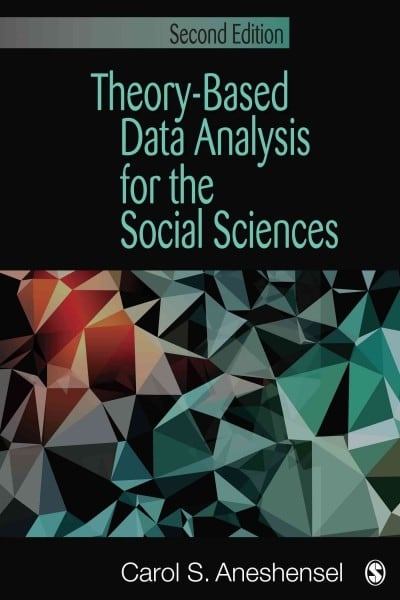Question
Respond to two of your colleagues' postings in one or more of the following ways: Ask a probing question. Share an insight from having read
Respond to two of your colleagues' postings in one or more of the following ways:
- Ask a probing question.
- Share an insight from having read your colleague's posting.
- Offer and support an opinion.
- Make a suggestion.
- Expand on your colleague's posting.
Colleague 1:
Post an analysis of the article you found. In the analysis, identify which theory was utilized to treat this issue.
The article I found emphasized how emotion-oriented couple therapy could assist couples involved in marital infidelity with their communication beliefs and forgiveness. Reactions can be harsh if an individual realizes that their companion is cheating. This study intended to determine how well emotion-oriented couple therapy affected the communication styles and forgiveness of married infidelity-affected couples (Rad, 2021). The article's couples on the verge of divorce were required to fill out a communication belief and a forgiveness questionnaire at the start and end of each treatment session. The study's statistical population included couples who were about to file for divorce and were referred to Kermanshah's Deputy for Justice and Prevention in 2019 as a result of marital infidelity (Rad, 2021). The study included twenty-four pairs, each of which had eight sessions total for the experimental group after they were randomly assigned to the experimental and control groups based on the available sampling method.
Discuss if the treatment was effective or ineffective in helping the couple work through the issue.
The therapy was successful in assisting the couples in resolving their problems. Results indicated that for couples who have experienced marital breakdown, emotion-oriented couples therapy can dramatically improve forgiveness and decrease problematic communication beliefs (Rad, 2021). It demonstrated an efficient and successful method to lessen the dysfunctional beliefs held by the couple and encourage forgiveness, assisting in enhancing married relationships. In order to rebuild trust and strengthen attachment relationships, couples can learn more effective coping strategies for distressing emotions and unfavorable interaction patterns through emotional couple therapy (Turner, 2023). Many issues can be resolved when both individuals are prepared to engage in the healing process in a transparent, vulnerable, and understanding manner.
Explain whether or not you believe there is some other intervention that would be beneficial for this situation.
In actuality, different forms of intervention can help couples who have been wounded as a result of marital infidelity. A tool that might be great to use with couples is discernment counseling. Couples who feel they are about to file for divorce and need advice on whether to dissolve their union might seek therapy, known as discernment counseling (Blain, 2023). The goal of discernment counseling for both partners is greater clarity and confidence in one's ability to make decisions regarding the future of one's relationship. Couples can decide what's best for them through this therapy.
Reference
Blain, T., MA. (2023, November 27). Discernment Counseling: definition, techniques, efficacy. Verywell Mind. https://www.verywellmind.com/discernment-counseling-definition-techniques-and-efficacy-5219802#:~:text=Discernment%20counseling%20is%20a%20form,other%20wants%20to%20remain%20married.
Rad, A. I. (2021, July 1). The effectiveness of emotion-oriented couple therapy on forgiveness and communication beliefs of couples involved in marital infidelity. https://doaj.org/article/e4566bec987e42eab9788dea27b519a2
Turner, M. (2023, August 1). Why choose EFT for Your Affair Recovery | The Therapist Within Dallas Marriage Counseling, Couple Therapy, and Relationship Therapy for Millennials. Dallas Marriage Counseling, Couple Therapy, and Relationship Therapy for Millennials. https://www.mytherapistwithin.com/blog-relationships/2022/4/25/why-choose-eft-for-your-affair-recovery#:~:text=For%20the%20above%20reason%2C%20I,next%20most%20successful%20therapy%20approach.
Colleague 2:
Post an analysis of the article you found. In the analysis, identify which theory was utilized to treat this issue. Then, discuss if the treatment was effective or ineffective in helping the couple work through the issue. Finally, explain whether or not you believe there is some other intervention that would be beneficial for this situation.
In the article BehavioralCouplesTherapy for Alcoholism and DrugAbuse,O'Farrell & Schein focus on how Behavioral Couples Therapy (BCT) can provide a positive result for couples who may face external factors such as drug and substance abuse concerns. This article is compiled of numerous case examples, which breaks down the external factor and it provides an evidence-based solution that was used to approach the external factors. In this article BCT was utilized to treat issues that the couple had faced. Behavioral Couples Therapy (BCT) is designed for married or cohabiting individuals seeking help for alcoholism or drug abuse. (O'Farrell & Schein, 2011) Behavioral Couples Therapy is effective in helping couples work through external factors mentioned above. Two major goals of interventions focused on the substance abuser's couple relationship are (a) to increase positive feeling, goodwill, and commitment to the relationship; and (b) to teach communication skills to resolve conflicts, problems, and desires for change. (O'Farrell & Schein, 2011) I believe that there are numerous interventions that may be effective in this situation. For example, Cognitive behavioral therapy. CBT aims to help clients resolve present-day challenges like depressionoranxiety, relationship problems,angerissues,stress, or other common concerns that negatively affect mental health and quality of life. The goal of treatment is to help clients identify, challenge, and change maladaptive thought patterns in order to change their responses to difficult situations. (Psychology Today, 2017)
O'Farrell, T. J., & Schein, A. Z. (2011). Behavioral Couples Therapy for Alcoholism and Drug Abuse.Journal of Family Psychotherapy,22(3), 193-215. https://doi.org/10.1080/08975353.2011.602615Links to an external site.
Psychology Today. (2017).Cognitive Behavioral Therapy | Psychology Today. Psychology Today. https://www.psychologytoday.com/us/therapy-types/cognitive-behavioral-therapy
Step by Step Solution
There are 3 Steps involved in it
Step: 1

Get Instant Access to Expert-Tailored Solutions
See step-by-step solutions with expert insights and AI powered tools for academic success
Step: 2

Step: 3

Ace Your Homework with AI
Get the answers you need in no time with our AI-driven, step-by-step assistance
Get Started


